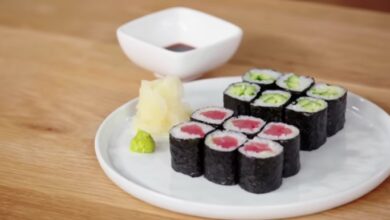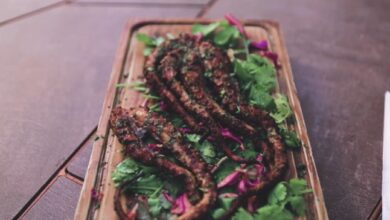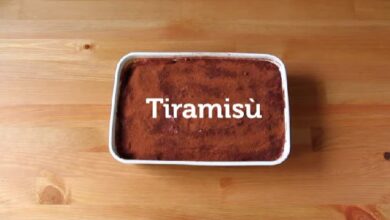Is Crab Halal
In the world of Islamic dietary laws, the question of whether crab is halal (permissible) or haram (forbidden) is a subject of considerable debate among scholars. This comprehensive article delves into the nuances of this debate, exploring various perspectives, religious texts, and scholarly opinions. Understanding these different viewpoints is crucial for Muslims who wish to align their dietary choices with their religious beliefs.
Introduction
The topic of whether crab is halal is both fascinating and complex, rooted in centuries-old Islamic jurisprudence. The permissibility of consuming certain foods is a significant aspect of a Muslim’s life, influencing not only diet but also cultural practices and personal beliefs. Seafood, in general, is a beloved culinary delight around the world, but for Muslims, the permissibility of consuming crab is not straightforward. The intricacies of this issue lie in the interpretation of religious texts and the classifications within Islamic dietary laws. This article aims to provide an in-depth understanding of the various opinions on the halal status of crab, offering insights from multiple schools of thought and respected scholars.
Islamic Dietary Laws and Seafood

General Guidelines
Islamic dietary laws, derived from the Quran and Hadiths (sayings and actions of the Prophet Muhammad), classify foods into categories of halal and haram. Seafood generally falls into the halal category, as it is mentioned in the Quran that the catch of the sea is lawful to eat. However, the interpretation of what constitutes “the catch of the sea” varies among scholars, particularly when it comes to crustaceans like crab.
The Divergence of Opinions
Hanafi School
The Hanafi school of thought, one of the major Sunni Islamic schools, considers only fish with scales to be halal. Since crabs do not have scales, many Hanafi scholars classify them as makruh (disliked) or even haram. This interpretation is based on a strict adherence to the criterion of scales as a distinguishing feature of permissible fish.
Shafi’i, Maliki, and Hanbali Schools
On the other hand, the Shafi’i, Maliki, and Hanbali schools are more lenient, generally considering all sea creatures to be halal, including crabs. These schools base their rulings on broader interpretations of the Quranic verses and Hadiths that allow the consumption of all seafood, emphasizing that the absence of specific prohibitions makes them permissible.
Scholarly Interpretations
The debate over crab’s halal status involves nuanced interpretations of Islamic texts:
- Pro-Halal Argument: Some scholars argue that the Quranic verse allowing the catch of the sea includes all marine life, not just fish with scales. They also cite Hadiths where the Prophet Muhammad permitted the consumption of all sea creatures, emphasizing that crabs fall under this broad category.
- Pro-Haram Argument: Opposing scholars maintain that crabs, being crustaceans, do not meet the traditional criteria of permissible seafood as they lack scales and are fundamentally different from fish. They argue that the classification of halal seafood should be more restrictive, excluding crabs.
Practical Considerations for Muslims
Given the diversity of opinions, Muslims are advised to seek guidance from knowledgeable religious authorities and consider their personal beliefs and local practices. In countries with significant Muslim populations, halal certification bodies can provide clarity by certifying seafood, including crabs, based on established criteria.
Where to Buy Halal-Certified Crabs
For Muslims who choose to consume crabs, it is essential to purchase from reputable sources that offer halal-certified seafood. Many countries have halal certification organizations that ensure seafood products meet the necessary standards. Checking for halal certification labels and consulting local halal markets can help in making informed dietary choices.
Conclusion
The question of whether crab is halal in Islam is multifaceted, with differing opinions among scholars. While some consider crabs to be halal based on a broad interpretation of Islamic texts, others classify them as makruh or haram due to their lack of scales. Ultimately, the decision rests on individual beliefs and the guidance of religious authorities. Respecting diverse interpretations within the Muslim community is crucial for fostering understanding and unity.
Frequently Asked Questions
Is crab halal in Islam?
Some scholars consider crab halal, while others view it as makruh or haram. It is best to seek guidance from a knowledgeable religious authority.
What are the criteria for halal seafood in Islam?
Generally, seafood should have scales, according to some scholars. However, interpretations vary, with some schools of thought allowing all sea creatures.
Why do some scholars consider crab halal?
These scholars argue that all sea creatures are permissible based on broad interpretations of Quranic verses and Hadiths.
Why do some scholars consider crab haram?
They maintain that crabs do not have scales and are fundamentally different from fish, thus not meeting the criteria for halal seafood.
Is there any specific reference to crabs in the Quran or Hadith?
There are no direct references to crabs, leading to varying interpretations based on broader principles.
What should I do if I am unsure about the permissibility of crab?
Consult a knowledgeable religious authority or follow the practices of your local Muslim community.
Are there halal-certified crabs available?
Yes, many countries have halal certification bodies that ensure crabs and other seafood meet halal standards.
How do I identify halal-certified seafood?
Look for halal certification labels and purchase from reputable halal markets.
Can Muslims consume other crustaceans like lobster or shrimp?
Opinions vary, but many scholars consider lobsters and shrimp to be halal, similar to crabs.
What is the ruling of the Hanafi school on crabs?
The Hanafi school generally considers crabs to be makruh or haram due to the absence of scales.
What is the ruling of the Shafi’i, Maliki, and Hanbali schools on crabs?
These schools typically allow the consumption of all sea creatures, including crabs.
Are there differences in halal rulings between Sunni and Shia scholars?
Yes, there may be differences, so it is essential to consult scholars from your specific Islamic tradition.
Can cultural practices influence the interpretation of halal rulings?
Yes, local cultural practices can influence how Islamic dietary laws are applied.
Are there any health considerations regarding the consumption of crab?
Like all seafood, crabs can be part of a healthy diet, but it is important to ensure they are sourced and prepared safely.
How can Muslims promote understanding and respect regarding differing opinions on halal food?
By recognizing and respecting diverse interpretations within the community, fostering dialogue, and seeking unity in shared beliefs.
Understanding the varied perspectives on the halal status of crab helps Muslims make informed decisions that align with their religious and personal beliefs. Respecting these differences is essential for maintaining harmony within the Muslim community.
Read also:





